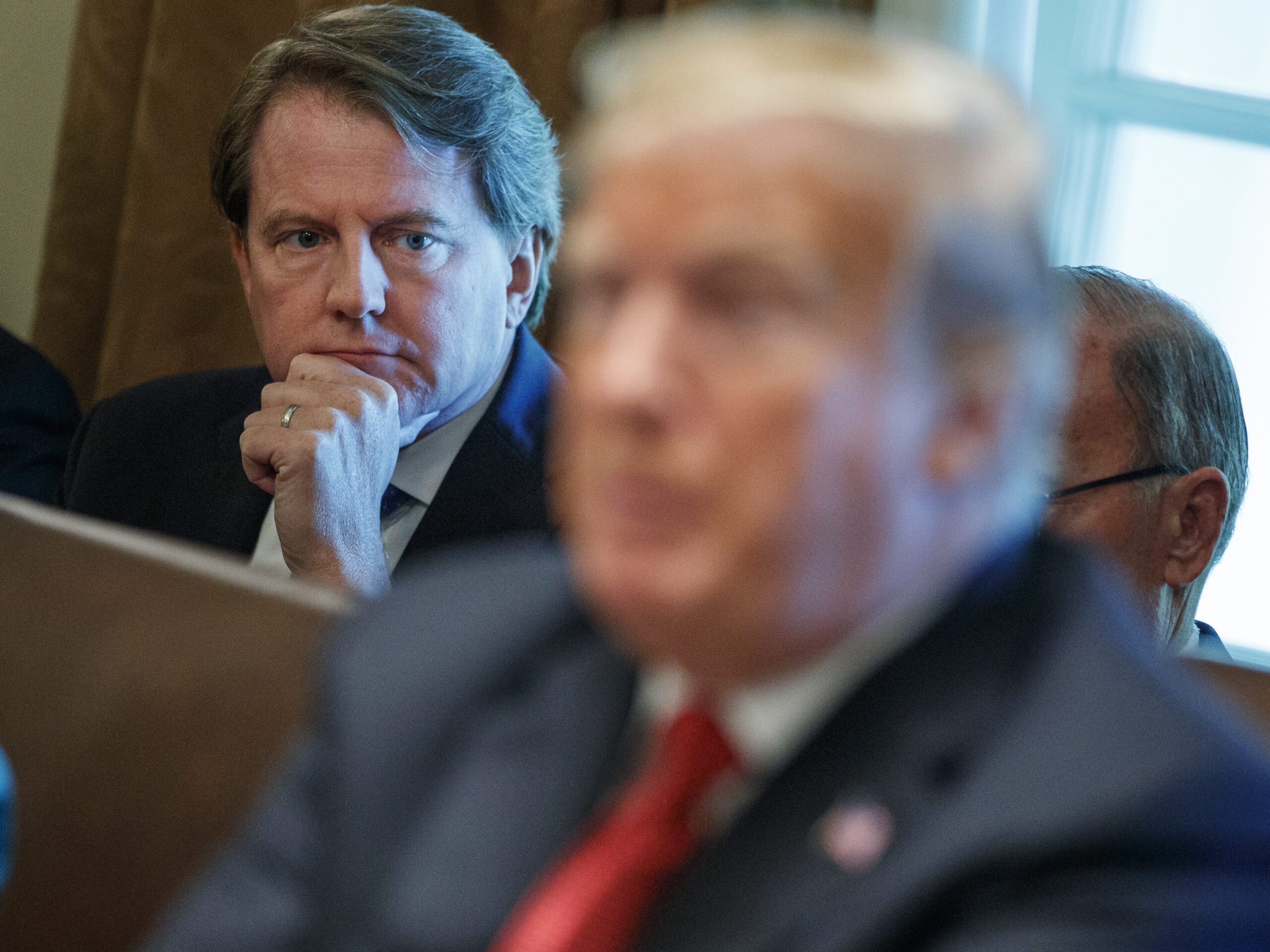White House Says It’s Blocking Don McGahn From Testifying In Congress

Then-White House counsel Don McGahn looks on as President Trump speaks during a Cabinet meeting in October 2018. McGahn is now barred from talking to Congress, the White House says.
Evan Vucci / AP
Updated at 4:33 p.m. ET
The Trump administration is seeking to block former White House counsel Don McGahn from talking to Congress.
That response on Monday to a subpoena from the House Judiciary Committee escalated an ongoing political standoff with Democrats over information related to special counsel Robert Mueller’s Russia investigation.
Assistant Attorney General Steven Engel sent the current White House counsel, Pat Cipollone, a 15-page legal memo on Monday detailing what Engel called the reasons that the White House can keep McGahn and his documents out of the hands of lawmakers.
Meanwhile, Cipollone wrote to Judiciary Committee Chairman Jerry Nadler, D-N.Y., to affirm that McGahn would not appear at any hearing on Tuesday as Democrats had hoped.
Decades of precedent and the arguments of both Republicans and Democrats justify Trump’s ability to keep McGahn or other senior aides out of a witness chair and his documents confidential, Engel wrote.
He cited the work of boldfaced names of Washington history from then-Attorney General Janet Reno to then-Assistant Attorney General William Rehnquist.
“We believe that these established principles apply to bar the committee from compelling Mr. McGahn to testify,” Engel wrote. “The counsel to the president clearly qualifies as a senior adviser to testimonial immunity … We have also recognized that the immunity continues to apply after the counsel leaves the White House.”
Standoff with Democrats
The formal notifications followed weeks of escalating tension between Nadler, Trump and the Justice Department under Attorney General William Barr.
The letters also followed a decision by Barr not to appear himself at a Judiciary Committee hearing over differences in its rules for questioning, and Barr’s decision not to give Nadler’s committee the full, unredacted report by special counsel Mueller.
The House Judiciary Committee voted to hold Barr in contempt of Congress for not turning over Mueller’s full report and its underlying evidence.
Nadler and his committee may vote soon to hold McGahn or others in contempt of Congress, too. That would set the stage for a vote by the full House of Representatives, possibly later in the summer, to hold Barr, McGahn and possibly others in contempt, too.
Members of Congress may use lawsuits to challenge the denials they’ve encountered from the administration in accessing witnesses and documents, but those cases could take months or years to resolve.
In the short term, the effect of Trump’s and Barr’s decisions is to stop House Democrats from getting more grist for investigations built to follow up or build upon that completed by Mueller.
McGahn’s attorneys have said he was going to stand fast and take no action until the questions are resolved between the branches of government.
9(MDAxODM0MDY4MDEyMTY4NDA3MzI3YjkzMw004))








